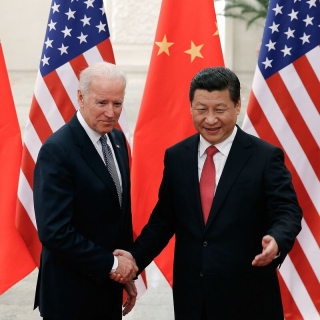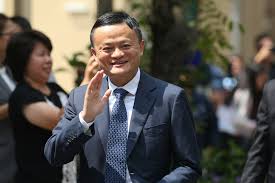
If it works, it’s the biggest story of the decade.
Secretary of State Antony Blinken got a surprisingly warm reception in Beijing last week. He even got an audience with Xi Jinping, complete with a handshake that shows Xi as an old Chairman Mao.
China’s establishment is torn between two ambitions.
Its military and political establishment want Taiwan back. They’re willing to kill millions of their own people to get it. They see the price being paid for their depredations in Xinjiang and Hong Kong as worthwhile. They want what Japan wanted before World War II – a “Greater East Asia Co-Prosperity Sphere” that can stand as an equal to America’s dominance of Latin America.
China’s business establishment, and its people, want the deal they signed up for 45 years ago. Deng Xiaoping made a compact with his citizens in 1978, capitalist prosperity in exchange for absolutist unity. Westerners read Tiananmen as the destruction of freedom, and China’s efforts to forget it as ignoring the lessons of history. Both are true. But the other side in that exchange, an apartment, a car, and a chance at real wealth, is just as real.

This force within China is led by Alibaba co-founder Jack Ma, who is currently in Japan. (Which tells you a lot.) Alibaba has been a particular target of Xi’s ire. Ma’s own net worth has been cut in half, even while he has diversified away from the company he co-founded.
But the “Alibaba Mafia” still exists, and this week they returned to the forefront. Joe Tsai, born in Taiwan and now an American sports mogul, is coming back as chairman. Another co-founder, Eddie Wu, becomes CEO. The outgoing CEO, Daniel Zhang, is being shuffled off to the cloud unit, which will be spun out.
All these moves make good business sense but, as with Kremlinology in your father’s time, there are multiple meanings. China’s economy is not recovering. China faces a demographic cliff. China is undergoing a brain drain that includes many of its best entrepreneurs.
A turn back to pre-2020 business ideals is not guaranteed to stick. Better economic numbers could simply embolden the hard liners. The gains may not appear quickly, also emboldening the hard liners. There’s also the American war party to contend with. I’m seeing an increased anti-Chinese venom, even from businesspeople. Politicians are lining up to stand with Taiwan, and there’s bipartisan support for an even bigger military budget.
They say getting a rich man into heaven is as hard as getting an elephant through the eye of a needle. So is saving the world from disaster. No matter how much you may want it, a war between China and the U.S. would be a disaster. If it can be prevented, it should be.











